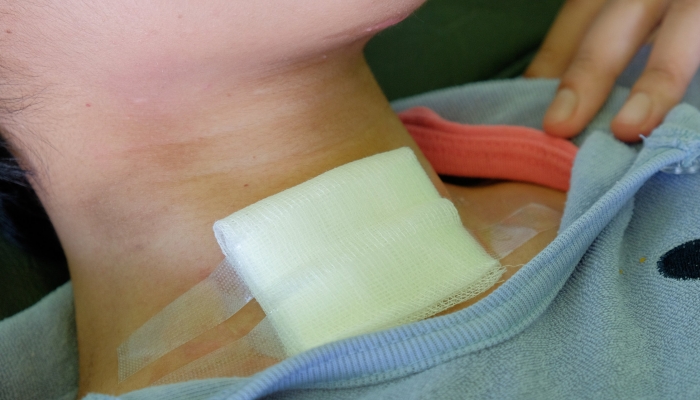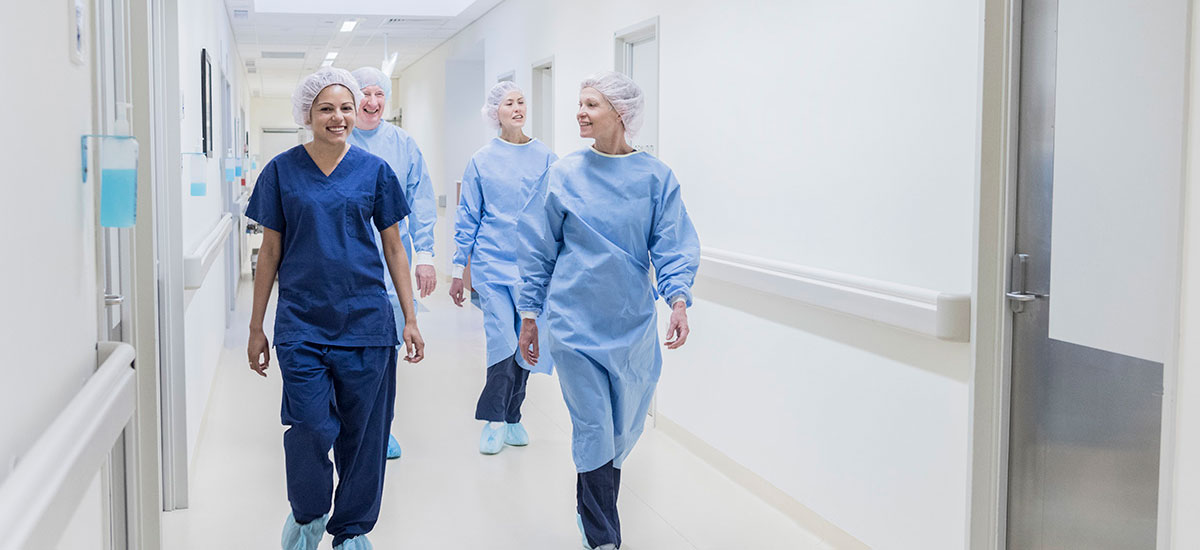Brachytherapy – Common Questions and Answers

Dr. Robert J. Cole, a radiation oncology partner at Specialty Surgical Center, specializes in brachytherapy (prostate seed implantation). He is currently the only seed implant specialist in New Jersey certified by Pro-Qura, a prestigious program developed by the Seattle Prostate Institute. Dr. Cole often gets asked a lot of questions about the brachytherapy procedure. Today, the team at Specialty Surgical Center is taking the time to answer some of those questions.
1. What are the “seeds” used during implantation?
When we talk about seed implantation, we are referring to pre-filled radioactive pods that are inserted into cancerous prostate tumors with a needle. In some cases, these pods may be inserted at intervals instead of all at once. The seeds are highly effective because they decay quickly, allowing the radiation to work from inside the tumor.
2. How long will I undergo treatment?
In some cases, if the tumor is more aggressive and fast-growing, physicians may use seeds that produce a larger quantity of radiation for a shorter duration. Other times, physicians recommend a different type of seed for slower growing tumors. Fortunately, patients do not require extensive downtime after this procedure. Most patients resume day-to-day activities in less than a week.
3. What happens to the seed after treatment?
After the seeds administer the radiation, they remain in the prostate. Removing the seeds has not been proven as beneficial or harmful to the patient. Therefore, a second procedure is not necessary to discard the seeds. Instead, the seeds may move on their own and fall into the bladder. A physician will provide patients with post-operative instructions on what to expect when these seeds are expelled through urine.
4. Are there any side effects to brachytherapy?
As with many prostate cancer treatments, patients who undergo brachytherapy are at risk of developing incontinence. This is particularly true for elderly men, but a physician will discuss risks on a case-by-case basis. In addition to incontinence, people may feel the urge to urinate frequently and experience a burning sensation as they go. If blood is found in the urine, there is no need to panic, as this is normal. However, patients should call Specialty Surgical Center immediately if larger clumps of blood are found after urinating.
At Specialty Surgical Center, we are happy to answer all questions so patients can feel prepared and ready for any radiation oncology treatment. If you have any questions or concerns about your treatment, please do not hesitate to call us.
Specialty Surgical Center is located in Sparta, New Jersey, and our staff consists of board certified surgeons and anesthesiologists performing procedures in Orthopedics, Sports Medicine, Spinal Care, Podiatry, Urology, Pain Management, ENT, Hand Surgery, Lithotripsy, Brachytherapy, GYN and Laser Surgery.
For more information about Specialty Surgical Center, call 973-940-3166 or visit our Contact Page.
The advice and information contained in this article is for educational purposes only and is not intended to replace or counter a physician’s advice or judgment. Please always consult your physician before taking any advice learned here or in any other educational medical material.
Vaginal Fistula: Causes, Symptoms, and Treatments

Urogynecology is a medical subspecialty that combines the practices of urology and gynecology to effectively diagnose and treat conditions affecting women. Some of the most common urogynecology conditions include cystocele, enterocele, genital prolapse, urinary incontinence, and more. For the purpose of this blog, the physicians at Specialty Surgical Center are going to discuss the causes, symptoms, and treatments for a unique urogynecology disorder that is called a vaginal fistula.
A fistula is a general medical term that describes an abnormal connection between two organs. Fistulas can develop in an artery, colorectal organ, or reproductive organ. In this instance, a fistula forms in the wall of the vagina and connects itself to a nearby organ. There are different kinds of fistulas that can develop and affect various organs. For example, a vesicovaginal fistula describes a passage or hole that forms between the vagina and urinary tract. Other examples include a rectovaginal fistula, colovaginal fistula, and enterovaginal fistula.
Causes
Vaginal fistulas are usually caused by prolonged tissue damage to one specific area in the organ. Over time, the damaged tissue breaks down and causes a fistula to open up. Some of the most common causes of a vaginal fistula include:
- Surgery to the vagina, perineum, anus, or rectum
- Cancer treatment, specifically radiation therapy
- Inflammatory bowel disease
- Crohn’s disease
- Ulcerative colitis
- Diverticulitis
- A tear in the perineum after childbirth
Symptoms
Fortunately, vaginal fistulas are, for the most part, painless. While they may not cause physical discomfort, vaginal fistulas can lead to urinary issues, such as urinary incontinence. It’s important to see a physician right away about a vaginal fistula because this condition causes feces and urine to pass into the vagina. If this occurs for an extended period of time, an infection may develop. Specific vaginal fistula symptoms include:
- Fluid leaking from the vagina
- Foul-smelling vaginal discharge
- Gas releasing from the vagina
- Vaginal infections
- Soreness around the genital area
Treatments
Treatment for a vaginal fistula depends largely on the cause and patient’s symptoms. More often than not, the fistula will need to be repaired through a minimally invasive procedure. Before the patient undergoes surgery, he or she may be asked to take antibiotics to reduce the risk of infection. Moreover, underlying conditions will need to be evaluated to determine supplemental treatment options.
If you suffer from a vaginal fistula, let the experts at Specialty Surgical Center help! For more information about our practice, please call 973-940-3166 or visit our Contact Page.
Specialty Surgical Center is located in Sparta, New Jersey, and our staff consists of board certified surgeons and anesthesiologists performing procedures in Orthopedics, Sports Medicine, Spinal Care, Podiatry, Urology, Pain Management, ENT, Hand Surgery, Lithotripsy, Brachytherapy, GYN and Laser Surgery.
How to Maintain and Care for a Tracheostomy

A tracheostomy is a surgically created opening through the front of the neck into the trachea. The physicians at Specialty Surgical Center are highly skilled in the surgical procedure that creates this opening, which is called a tracheotomy.
Patients who require a tracheostomy often suffer from conditions or ailments that require the ongoing, long-term use of a breathing machine called a ventilator. In other instances, a tracheotomy may be performed in emergency situations to help a patient breathe after their airway has been blocked or obstructed.
While it is possible for a tracheostomy to be surgically closed if it’s no longer needed, for many patients with chronic breathing problems, this opening is permanent. There are a number of conditions that may require a tracheostomy, some of which include:
- Anaphylaxis
- Facial or neck burns
- Birth defects
- Cancer
- Coma
- Infection
- Injury to the larynx, chest wall, or lungs
- Paralysis
If you have a permanent tracheostomy, you know you have to care for it to maintain your health. If your stoma is not cared for properly, infections and other complications can develop, which can decrease your quality of life. Before you’re discharged from the surgery center or hospital, a nurse will review long-term care instructions for your tracheostomy. You may need a family member, loved one, or caretaker present to ensure the instructions are fully understood.
Because a tracheostomy hinders your ability to speak with others, you will need to adopt a new way of communicating your needs. Consider establishing hand signals or having a pen and paper nearby to communicate discomfort and pain. In regards to caring for and maintaining your tracheostomy, you’ll need a number of supplies to ensure a quick and sterile cleaning process.
Here are just a few things you may need during the cleaning process:
- Gloves
- Hydrogen peroxide
- Clean gauze pads
- Clean cotton swabs
- Clean washcloth or towel
- Clean toothbrush or pipe cleaners
- Saline or distilled water
- Trach tube ties
- Clean scissors
It’s important to first wash your hands with soap and warm water. You’ll want to stand or sit in front of a mirror to have a clear view of your tracheostomy. Put the gloves on and suction your trach tube. You may need to apply a gauze pad over your stoma to prevent debris from entering the opening. These next few steps apply to patients with an inner cannula:
- Remove the inner cannula and hold it over a sink to clean it with the hydrogen peroxide. Make sure you clean the inside and outside of the tube thoroughly. Y
- You’ll want to use your pipe cleaners and toothbrush to clean the inner cannula to ensure no residue is built up.
- Once you’re satisfied with the cleanliness of the inner cannula, rinse the tube with saline, tap, or distilled water. Dry to inner cannula completely, re-insert the inner cannula, and lock it in place.
- Soak the cotton swabs in a half hydrogen peroxide, half water solution and use them to clean the outer cannula.
- Soak the towel or washcloth in the saline solution and use it to clean the skin around your stoma. If you notice any redness, tenderness, or infection, alert a family member right away.
- Lastly, you’ll need to measure and cut new trach tube ties. You may need a loved one or caregiver to help you with this process to ensure everything fits comfortably.
- When you’ve finished cleaning all parts of your tracheostomy, throw away any used gauze, cotton swabs, gloves, etc. and be sure to wash your hands thoroughly. Do NOT reuse dirty or used towels or any old tracheostomy supplies to re-clean your device.
Your nurse will provide more in-depth instructions during your discharge. While these instructions may be helpful, it’s important to seek the advice of a trained health professional before attempting anything on your own. Please call the Specialty Surgical Center if you have any questions regarding the care of maintenance of your tracheostomy.
Specialty Surgical Center is located in Sparta, New Jersey and our staff consists of board certified surgeons and anesthesiologists performing procedures in Orthopedics, Sports Medicine, Spinal Care, Podiatry, Urology, Pain Management, ENT, Hand Surgery, Lithotripsy, Brachytherapy, GYN and Laser Surgery.
For more information about Specialty Surgical Center, call 973-940-3166 or visit our Contact Page.
The advice and information contained in this article is for educational purposes only and is not intended to replace or counter a physician’s advice or judgment. Please always consult your physician before taking any advice learned here or in any other educational medical material.
Surgery for a Torn Meniscus

The meniscus is a cartilage that lives between the femur and tibia and acts as a shock absorber. When the meniscus is torn, typically from a sports injury or other trauma, it may require surgery if it is unable to heal correctly on its own.
In the past, traditional knee surgeries were performed as open surgeries, which impacted a patient’s recovery. Today, most orthopedic surgeons perform arthroscopies to limit blood loss, reduce the risk of infection, and improve healing time. This procedure is the most common type for patients who suffer a meniscal tear at Specialty Surgical Center in Sparta, New Jersey.
Arthroscopy for a torn meniscus repairs the tear just as well as open surgery, but the difference is that arthroscopy is a minimally invasive procedure that decreases recovery time, costs less, and produces less overall pain than open surgery. It has a cosmetic benefit too because the incision is much smaller and produces a smaller scar on the knee.
How it Works
The patient is given anesthesia and the knee is sterilized. In some cases, patients may be given a femoral nerve block so the patient remains awake, but cannot feel the surgeon as he or she works. The surgeon then uses an arthroscope. This is a small instrument with a camera attached. It can fit through a tiny incision while still allowing the surgeon to see inside. Typically, two small incisions are made, but if the tear is severe, more incisions may be made to accommodate the injury. The joint is then expanded using the instrument to improve visualization. If the meniscus has strands or excess cartilage sticking out as a result of the tear, the surgeon removes these first.
Then, the surgeon helps repair the meniscus by allowing blood to flow to it. Meniscal tears are tricky to heal because our blood aids in the healing process, and there is naturally not a lot of blood flow to this area. The surgeon will then use his or her preferred technique, typically using sutures, to draw together the torn edges.
Finally, the surgeon takes one last look into the knee to ensure the wound is cleaned up and properly repaired. The instruments are removed and small stitches are used to clean up the small incisions (called portals).
Because Specialty Surgical Center’s orthopedic partners specialize in minimally invasive procedures like arthroscopy of the knee, the patient is able to return home the same day to recover, eliminating the cost of overnight hospital stays.
What Next
Patients may experience minimal pain over the next couple of days, but this can be curbed with pain medication and plenty of rest. Patients should be mindful of their surgical sutures and be sure to change dressings accordingly and avoid touching the area with dirty hands to minimize the risk of infection. The physician may recommend physical therapy in order to restore the knee back to full function following surgery.
Specialty Surgical Center is located in Sparta, New Jersey, and our staff consists of board certified surgeons and anesthesiologists performing procedures in Orthopedics, Sports Medicine, Spinal Care, Podiatry, Urology, Pain Management, ENT, Hand Surgery, Lithotripsy, Brachytherapy, GYN and Laser Surgery. For more information about Specialty Surgical Center, call 973-940-3166 or visit our Contact Page.
The advice and information contained in this article are for educational purposes only and is not intended to replace or counter a physician’s advice or judgment. Please always consult your physician before taking any advice learned here or in any other educational medical material.
What Does “Overlapping During Surgery” Mean?
There are a number of things that occur before, during, and after a surgical procedure. Two hours before the procedure, patients must be prepped by a registered nurse. This process will include the patient changing into a surgical gown and removing jewelry and other non-essentials.
The nurse will go over the patient’s medical history and monitor his or her heart rate, body temperature, blood pressure, and pulse. The surgeon performing the procedure will likely visit the patient during this stage to mark areas where the incisions will be made. The nurse will place an IV line in the patient’s arm and transport him or her to the operating room.
The Surgical Team
The beginning stages of surgery are pretty straightforward and happen in most surgical settings. However, it’s important to note that what goes on during the procedure varies from patient to patient. Depending on the surgery being performed, your surgical team may include four medical providers: the surgeon, anesthesiologist, surgical tech, and operating room nurse.
Sometimes, a certified registered nurse assistant will be present during the procedure. Other times, there are as many as eight or more medical providers in the operating room at one time. Again, it depends on the surgery being performed. For these complex procedures (the ones that require many medical providers), there are usually multiple operations occurring at one time. Because of this, there can be a surgery overlap.
Overlapping Surgery
Overlapping surgery occurs when a senior surgeon performs critical components of one operation while a trainee surgeon or physician assistant handles a non-critical portion of another procedure. An example of this would be a surgical assistant closing an incision to finish up an operation while the senior surgeon begins a new procedure for a different patient.
The general population doesn’t know much about overlapping surgery because it’s not something that usually comes up during the initial stages of treatment. This is primarily due to the fact that it’s always been common practice – allowing surgeons to perform more operations in a given day so that patients don’t have to wait as long for their procedure.
In many instances, overlapping surgery can be beneficial to patients and the surgical team performing the procedure. It allows patients to receive complete care from multiple individuals who all have exceptional skills, knowledge, and expertise, and it provides newer surgeons with the opportunity to gain new skills under new challenges. More importantly, overlapping surgeries is a common and safe practice that is only employed for certain situations. If you have questions about overlapping surgery, be sure to talk to your Specialty Surgical Center physician.
Specialty Surgical Center is located in Sparta, New Jersey, and our staff consists of board certified surgeons and anesthesiologists performing procedures in Orthopedics, Sports Medicine, Spinal Care, Podiatry, Urology, Pain Management, ENT, Hand Surgery, Lithotripsy, Brachytherapy, GYN and Laser Surgery.
For more information about Specialty Surgical Center, call 973-940-3166 or visit our Contact Page.
The advice and information contained in this article are for educational purposes only and is not intended to replace or counter a physician’s advice or judgment. Please always consult your physician before taking any advice learned here or in any other educational medical material.
Should Mobile Apps Be Used to Limit Follow-up Visits After Surgery?
According to the medical journal JAMA Surgery, a mobile app may reduce the need for in-person follow-up visits for patients who’ve undergone breast reconstructive surgery. This mobile app was the center of a recent study, and the results from the analysis showed a reduction in in-person follow-up visits without affecting complication rates or patient satisfaction ratings.
The study randomly assigned 65 women who were undergoing breast reconstruction at the University of Toronto’s Women’s College Hospital to have their follow-up appointment via an in-person visit or through the mobile app. The mobile app allowed patients to submit photos and questions that could be answered by their reconstructive surgeon. The surgeons who participated in the study would regularly submit post-operative reports for their patients through email.
According to the study, the patients using the mobile app attended “0.4 fewer” visits and did not report any signs of complications or dissatisfaction with this approach. While the mobile app in this study witnessed great success, it’s important to ask a simple follow-up question: “Should mobile apps even be used to limit follow-up visits after surgery?”
This is an important question to answer because while some instances may benefit from this technology, not all surgical cases will. In fact, surgeries that require multiple nights in the hospital or have an increased risk of complication would be wise not to get involved in this type of follow-up care. Moreover, the physicians at Specialty Surgical Center have always been a proponent of advancements in medicine and technology, but sometimes there is nothing better than the immediacy of seeing a physician in person.
Some surgeries are more routine than others, and many minimally invasive procedures that require very little anesthesia and are performed in an outpatient setting may benefit from this mobile app. From a cost-savings perspective, the use of a mobile app for follow-up visits would not only save the patient time and money, but the physician and his or her staff as well.
The bottom line: there’s no doubt technology is changing the landscape of medicine, but in some instances, this may not be a good thing. In others, however, it’s a very beneficial thing. The important thing to remember is whether or not the patient is being made a top priority – if tech like this can make that happen while saving time and cutting costs, then what’s the harm?
For the patients who are with us currently, do not fret – in-person follow-up visits will continue to be a major part of our company culture because they allow our team to provide as much care and expertise as possible. If you have any questions or concerns regarding your follow-up care, please do not hesitate to call our team!
Specialty Surgical Center is located in Sparta, New Jersey and our staff consists of board certified surgeons and anesthesiologists performing procedures in Orthopedics, Sports Medicine, Spinal Care, Podiatry, Urology, Pain Management, ENT, Hand Surgery, Lithotripsy, Brachytherapy, GYN and Laser Surgery.
For more information about Specialty Surgical Center, call 973-940-3166 or visit our Contact Page.
The advice and information contained in this article is for educational purposes only and is not intended to replace or counter a physician’s advice or judgment. Please always consult your physician before taking any advice learned here or in any other educational medical material.
Guideline Changes for Breast Cancer Surgery
According to the medical journal JAMA Oncology, researchers have developed new guidelines for women undergoing breast cancer removal surgery. The medical journal also commented on the history of breast cancer surgery and why this new guideline is being recommended to oncologists who specialize in breast cancer procedures.
According to the report, for more than a decade, women with early stage and/or non-invasive breast cancer would often undergo far more extensive procedures to remove their cancer, such as a bi-lateral mastectomy, instead of undergoing a lumpectomy. These extensive procedures were often recommended over less-invasive surgeries because doctors could not agree on a safe, cancer-free margin around tumors.
In fact, before the recommendations were made public back in 2014, doctors would suggest the surgery they thought would be most effective based on their educational backgrounds and training. Which means that if you went to 3-4 different doctors for your breast cancer surgery, you may have been recommended different procedures depending on that doctor’s personal treatment philosophy.
While that may sound alarming, it’s not. That’s just the nature of the business. It would be like going to contractor A and contractor B for quotes on a home improvement project and getting two different prices. Nevertheless, some doctors feel it is necessary to remove the tumor and 2 millimeters or more of normal tissue beyond the edge of the cancer to ensure an optimal outcome while others feel a clear margin could be even smaller than 1 millimeter.
Now, JAMA Oncology is recommending doctors focus on less invasive procedures for breast cancer because a “minimal negative margin was just as good as a bigger margin at reducing the risk of cancer coming back in that breast.” This new guideline has been adopted quickly, resulting in fewer repeat surgeries for further removal of tumors and possibly cancerous tissue.
To learn more about the new guidelines and how they impact women undergoing breast cancer surgery, please visit NPR News for the full story: http://www.npr.org/sections/health-shots/2017/06/05/531583177/fewer-women-need-to-undergo-repeat-surgery-after-lumpectomy.
Specialty Surgical Center is located in Sparta, New Jersey, and our staff consists of board certified surgeons and anesthesiologists performing procedures in Orthopedics, Sports Medicine, Spinal Care, Podiatry, Urology, Pain Management, ENT, Hand Surgery, Lithotripsy, Brachytherapy, GYN and Laser Surgery.
For more information about Specialty Surgical Center, call 973-940-3166 or visit our Contact Page.
The advice and information contained in this article are for educational purposes only and is not intended to replace or counter a physician’s advice or judgment. Please always consult your physician before taking any advice learned here or in any other educational medical material.
Prep Your Immune System Before Surgery

We’ve said it more than once, but for good measure, we’ll say it again: surgery should be treated like a fitness event or marathon. Meaning, patients should prepare themselves for surgery the same way they would prepare themselves for 13.1 or 26.2 miles of non-stop running. Sadly, many patients don’t take this approach with surgery, but that’s partly because it isn’t talked about between the physician and patient. Of course, your surgeon will walk you through the basics of surgery prep: no smoking a few weeks before; cease certain medications about two weeks prior to surgery, and no food or drink a few hours before the procedure.
Still, it’s important we shift our current perception of surgery: the idea that you can be wheeled into the OR room without taking certain precautionary measures. At Specialty Surgical Center, we’re always trying to help our patients achieve optimal health, whether it be through conservative measures or life-saving surgical procedures. Our practice houses some of the best physicians in the area, so patients can rest assured knowing they’re in excellent hands.
How to Prep for Surgery
As we mentioned previously, you’ll need to follow your surgeon’s pre-operative orders before going into surgery. In addition to those requirements, you can prep your immune system in the following ways:
Address nutritional deficiencies
If your surgery date is several weeks or month away, it may be worth your while to get your blood checked out to see if you suffer from any nutritional deficiencies. If you do, you can talk to your doctor about taking supplements or making changes in your diet to help boost your immune system and other areas of your health. Having a strong, healthy immune system could help ensure a positive outcome after surgery.
Purchase a spirometer
For those unfamiliar with spirometers, this device is used to measure the air capacity of the lungs. While it’s not essential for surgery prep, a spirometer will help encourage deep breathing exercises to prevent pneumonia. There are a number of inexpensive spirometers available on the market today that you can purchase to start practicing deep breathing.
Develop a workout plan
Exercising consistently a few weeks before your surgery can help lower your risk of post-surgical complications. Why? Well, regular exercise strengthens muscles, boosts oxygen and blood flow throughout the body, and helps get rid of fat in a patient’s midsection, which can ensure a much quicker recovery. If you don’t know where to start, consider this: getting about 30 minutes of exercise 4-5 days a week is what the American Heart Association recommends. That may include walking, running, swimming, strength training, yoga, etc. Exercise doesn’t have to be a chore! Make it fun!
If you have any questions about concerns about your surgery, do not hesitate to schedule an appointment with your Specialty Surgical Center physician. He or she would be more than happy to walk you through the process and answer any questions you may have!
Specialty Surgical Center is located in Sparta, New Jersey, and our staff consists of board certified surgeons and anesthesiologists performing procedures in Orthopedics, Sports Medicine, Spinal Care, Podiatry, Urology, Pain Management, ENT, Hand Surgery, Lithotripsy, Brachytherapy, GYN and Laser Surgery.
For more information about Specialty Surgical Center, call 973-940-3166 or visit our Contact Page.
The advice and information contained in this article are for educational purposes only and is not intended to replace or counter a physician’s advice or judgment. Please always consult your physician before taking any advice learned here or in any other educational medical material.
Should You Undergo Spine Surgery for Your Aging Back?

Minimally invasive spine surgery is an intimidating prospect no matter how old you are or how many surgeries you’ve undergone in the past. This is especially true considering the spine was once a difficult part of the body to operate on; the surrounding muscles, nerves, and ligaments made patients vulnerable to infection and other complications.
Fortunately, the practice has advanced – allowing patients to get up and walk a few hours after surgery. This is remarkable if you think about it, especially since operating on the spine once required weeks of bed rest and other post-op recovery methods. Now, spine surgeons actually encourage safe, supervised movement after surgery to promote the post-surgical healing process.
Just because spine surgery has advanced significantly over the years, does not mean you still don’t have your doubts or fears about it – we totally understand! Nevertheless, we are here to explain why it may be time for you to undergo minimally invasive spine surgery for your aging back.
1. Your Degeneration May Worsen
Spinal vertebrae are made of bone, tissue, and cartilage – all things that will, unfortunately, degenerate as we get older. If you already suffer from a spinal condition caused by degeneration, there is little you can do to prevent it from worsening. Of course, you can receive steroid injections to relieve your pain and reduce your inflammation, but over time, your degeneration will likely worsen, requiring spine surgery down the road. To prevent extensive damage to your spine, it may be worth your while to undergo a minimally invasive spine surgery to restore vertebral height and stability.
2. You’ll Experience Long-Term Pain Relief
If you’re receiving treatment for your spine pain in the form of medications, nerve blocks, steroid injections, or radiofrequency ablation, you are probably already aware of the fact that these methods, while effective, can only provide short-term pain relief. It’s true, you may experience pain relief for several months or years with interventional pain therapy, but your pain will likely return once the steroid medication wears off or the nerves from your ablation procedure have returned. Spine surgery, on the other hand, has the potential to provide pain relief that lasts the rest of your adult life because it corrects the problem at the source instead of masking your pain symptoms.
3. It’s More Cost Effective in the Long Run
You heard that right – your spine surgery may be a more cost-effective option for you, especially if you suffer from chronic, debilitating pain. Over time, your pain treatments, doctor’s appointments, physical therapy sessions, and other treatment modalities will add up, resulting in more money out of your pocket. The benefit of undergoing spine surgery is that you only do so once, which means after your procedure you’ll be on your way to long-lasting pain relief.
If you’re considering spine surgery, talk to your Specialty Surgical Center physician about your options. Our team would be more than happy to walk through the process with you!
Specialty Surgical Center is located in Sparta, New Jersey, and our staff consists of board certified surgeons and anesthesiologists performing procedures in Orthopedics, Sports Medicine, Spinal Care, Podiatry, Urology, Pain Management, ENT, Hand Surgery, Lithotripsy, Brachytherapy, GYN and Laser Surgery.
For more information about Specialty Surgical Center, call 973-940-3166 or visit our Contact Page.
The advice and information contained in this article are for educational purposes only and is not intended to replace or counter a physician’s advice or judgment. Please always consult your physician before taking any advice learned here or in any other educational medical material.
Sinus Infection vs. Cold vs. Allergies

A runny nose, watery eyes, and pressure near/around the sinuses are tell-tale signs you have allergies, right? Perhaps. These symptoms could also indicate the common cold, or in severe cases, a sinus infection. If you haven’t experienced a sinus infection before, you may not know what to expect from this ailment. This is usually because a sinus infection often mimics the signs and symptoms of a cold or seasonal allergies. Fortunately, the team at Specialty Surgical Center is here to help you determine the differences among sinus infections, colds, and allergies.
The ear, nose, and throat (ENT) doctors at Specialty Surgical Center specialize in a number of surgical and non-surgical procedures. For example, the team can administer simple allergy and hearing tests, as well as complex surgical interventions, such as rhinoplasties, tonsillectomies, and tracheotomies. Our physicians’ educational backgrounds, surgical skills, and clinical expertise allow them to determine whether or not you’re suffering from chronic ailments or serious diseases that require immediate medical attention.
As such, our specialists want to educate patients on the differences among sinus infections, colds, and allergies. Continue reading to learn more!
Colds vs. Allergies
Seasonal allergies and the common cold often share similar symptoms, such as:
- Congestion
- Coughing
- Runny nose
- Sneezing
- Sore throat
- Watery eyes
These symptoms can arise at any point during the year depending on the cause, and it’s important for patients to understand that “colds” don’t just occur in the wintertime. While these two ailments share similar symptoms, there are two symptoms that put the kibosh on this whole argument: fever and body aches. These two symptoms do not develop in patients with allergies. So, if you can’t quite figure out what’s causing your symptoms, check to see if your body temperature has risen or if your muscles are beginning to ache – if both occur, you’re probably experiencing a cold!
Sinus Infections
Sinus infections can be tricky to diagnose because they produce similar symptoms to both allergies and colds. Moreover, allergies, colds, and asthma can all trigger sinus infections, making it even harder to identify. Fortunately, sinus infections do produce symptoms that differ from the common cold and allergies. See below:
- An aching, pressure-like feeling in the middle of the face
- Nasal discharge
- Aching around the jaw
- Bad breath
- A headache that worsens when leaning forward or backward
These symptoms, in addition to a sore throat, watery eyes, coughing, sneezing, and congestion can all indicate a sinus infection. If your symptoms don’t go away after a week, schedule an appointment with one of our ENTs. He or she will be able to evaluate your symptoms and prescribe antibiotics to help with your infection.
Specialty Surgical Center is located in Sparta, New Jersey, and our staff consists of board certified surgeons and anesthesiologists performing procedures in Orthopedics, Sports Medicine, Spinal Care, Podiatry, Urology, Pain Management, ENT, Hand Surgery, Lithotripsy, Brachytherapy, GYN and Laser Surgery.
For more information about Specialty Surgical Center, call 973-940-3166 or visit our Contact Page.
The advice and information contained in this article are for educational purposes only and is not intended to replace or counter a physician’s advice or judgment. Please always consult your physician before taking any advice learned here or in any other educational medical material.
Some of the links on this page will take you away from
this site to another website, which may be a non-WCAG compliant website. SCA may not control the
content or links of non-SCA websites.







